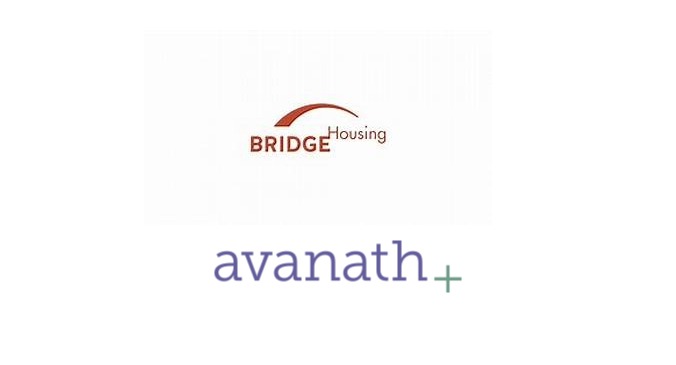When things go wrong in housing—who keeps the lights on in terms of capital? How can a borrower expect to get a multifamily loan in these uncertain times? The answer starts with the mothership of housing financing—The Department of Housing and Urban Development (HUD) acting by and through the Federal Housing Administration (FHA). No one saw COVID-19 coming which is part of the reason it’s created such havoc in the housing markets.
Fortunately, since the “Great Recession” we have fine tuned our secondary mortgage market to be better prepared and have extended Government support to the giant multifamily agencies Freddie Mac and Fannie Mae (the GSE’s). Both Freddie and Fannie continue to be under government receivership and although not technically U.S. agencies, it is understood they are well supported.
When you consider HUD, FHA (the largest mortgage insurer in the world) and the GSE’s, our multifamily debt market remains liquid and strong.
HUD and GSE lenders have a core mission to provide liquidity to the housing finance system and serve both our single and multifamily markets. FHA in particular states in their Management Annual Report that they will “step in as a countercyclical backstop during times of economic stress; providing relief to individuals and families affected by disasters.”
When the global pandemic COVID-19 hit, it put those statements to the test as the virus created both a health emergency and a financial crisis in a brutal 1-2 combo. In the past we have seen economic indicators turn prior to a recession or financial downturn.
In the case of our current “new normal” we didn’t have a warning as sudden stay-at-home orders had immediate and severe financial consequences to individuals, families and businesses across America and the world.
Offering assurances
Brian Montgomery, Assistant Secretary for Housing and Federal Housing Commissioner at HUD took to YouTube for a direct-address assuring the market that HUD remains in business working remotely. He also let nervous borrowers know that the FHA wants to help prevent foreclosures and that HUD is open for business and the staff is working remotely.
One area of GSE and HUD lending that remains unknown is how third-party inspectors such as appraisers, and property capital needs assessors, and environmental consultants will continue to evaluate properties for new applications. HUD personnel inspections have been postponed until further notice. Generally, HUD is waiving requirements that involve face-face contact or inspections that provide unnecessary risk.
The U.S. Government has made bold moves by passing the $2 trillion coronavirus relief/economic stimulus bill (the CARES Act) that President Trump signed into law, providing much needed forgiveness and deferment to Small Business Administration (SBA) Borrowers. The small business owners, particularly in retail and hospitality which constitutes a large portion of the SBA borrower pool, were hit hard and swiftly by the public place closures.
The CARES Act is providing $1,200 in direct payments to adults and $500 per child to American households, structured as tax refunds. The direct grants are phased out for upper income brackets, starting with $75,000 of individual income.
Unemployed workers would extend the duration of jobless benefits to 39 weeks from 26 available in most states, and includes a $600-a-week increase for the first four months, with the bonus payment being available through July 31st. The $600-a-week increase on unemployment insurance was expanded to include independent contractors as well. While the payment increases are helpful they may not be enough to help renters stay current depending on where they rent.
What’s ahead
In the succeeding twelve months as renters experience financial hardship they may not be able to make their monthly rent payment. In addition to unemployment insurance increases and small business loan relief, more is needed in the way of financial concessions from lenders who are monitoring covenants for owners of apartment buildings.
Late rents will be a lagging indicator as some tenants have access to limited savings or borrowings to get through the immediate term, but may struggle in the months to come. It’s likely that there will be an uneven impact based on different employment populations in apartment communities. For example, if your property is a higher-end market rate property with a tenant population largely composed of professional service providers you may see less of an impact in missed rent payments. Interesting to note that in the “Great Recession”, this employment population was hit hard.
With COVID-19 If you have a tenant population that is weighted heavily towards the new “gig” economy workers and the service industry you may experience missed rent payments at a level never seen before. Weak collections lead to property level income shortages causing owners to struggle or miss multifamily mortgage payments.
In order to protect tenants President Trump, put a freeze on foreclosures and evictions by HUD through the end of April. The GSE’s don’t have direct relationships with tenants but are offering owners relief if owners of apartment buildings they lend to agree to suspend evictions. Both GSE’s issued their notices on March 24th, 2020. Fannie Mae announced relief for COVID-19, including forbearance, waived late fees, delinquency advances, and updated asset management property inspection guidance. Freddie Mac also announced COVID-19 relief in the form of borrowers being able to defer their loan payments for 90 days by showing hardship as a consequence of COVID-19 and by gaining lender approval.
According to recent Mortgage Bankers Association data, multifamily mortgage debt grew by 8.2 percent for 2019 and totaled $1.53 trillion during the fourth courter. GHA and GSE portfolios hold the largest share of total debt outstanding at $744 billion (49 percent of the total).
With the largest portfolio of multifamily debt in the industry, HUD and the GSE’s have all the motivation to find solutions and create new options to keep owners from going into default or foreclosure and tenants from being evicted.
It’s in their mission statements to provide liquidity and support to the US in tough times, and now we are calling on them to do just that.
Author Michael Thomas, Gershman Investment Corp.
















